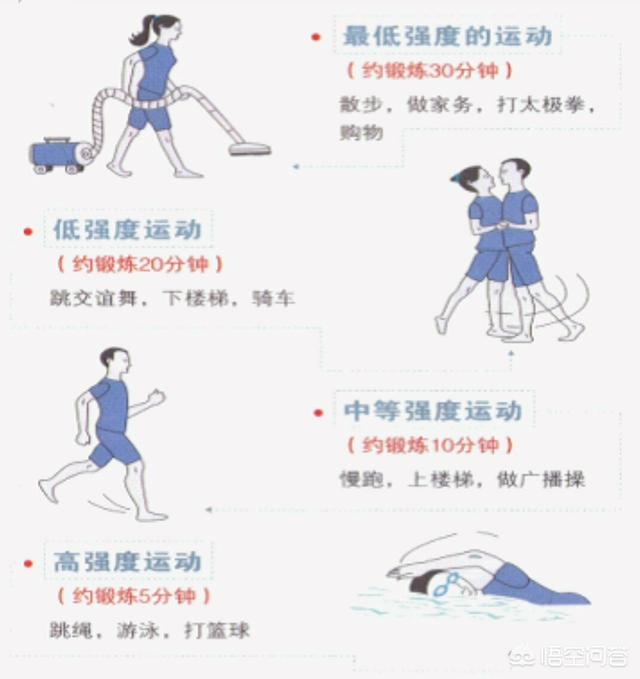How many days do diabetics see results from exercising?
How many days do diabetics exercise to see results? Asking this question suggests that the subject is a bit eager to get started, or perhaps hasn't really started exercising yet, but this is a concern for many, after all, exercising every day isn't something that everyone can keep up with.
The World Health Organization has done a survey and found that the proportion of people who exercise five days a week for 30 minutes each time and are able to stick to it is less than 40%, which should be considered a very low proportion.
In fact, for diabetics, a day of exercise is a day of effect. We encourage hospitalized patients or patients in home treatment to monitor their blood glucose on a daily basis, so they can see the effect of exercise therapy. Often we get feedback from patients saying that if I exercise for 30 minutes, I can see that my blood sugar is dropping. If you don't exercise, your blood sugar doesn't drop as much.
This is because exercise promotes the utilization of glucose by muscle tissue and improves insulin resistance, thus effectively lowering blood sugar.
So, we advise our patients to exercise, and a little bit of exercise every day will affect your blood sugar every day, and a long check will improve your blood sugar over time. Truly.A little exercise goes a long way, but a lot of exercise goes a long way., doesn't it feel great to feel accomplished when your blood sugar stays steady all the time!
Working out consistently will also strengthen your muscles, build your bones, improve your cardio and make you more fit. What a great result. It should be said that these are the effects that we hope to achieve by exercising. But to achieve this effect, you need to exercise for a long time, adhere to every day, and carry out scientific training.
Exercising on an empty stomach is not recommended; 30 minutes after a meal is the best time to exercise. Those who are not too stressed at work can find a regular period of time to exercise, which is also beneficial for the adjustment of medication. For diabetic friends who live a less regular life, they can be active after work. Anyone, in any situation, can exercise if they want to.
Stick with exercise for smoother blood sugar!
I'm Dr. Sun, follow Dr. Sun on Sugar for continued quality health knowledge. Please like me if you are helpful, leave a message if you have any questions, and I will reply!
How many days does the workout work? It seems like so far this can't be determined by a specific number. Diabetes treatment is currently outlined in three ways, the first is dietary treatment, the implementation of low-sugar, low-fat, appropriate protein, high-fiber, high-vitamin diet, with a special emphasis on timing and quantity.
The second is medication, which should be taken on time and in accordance with the doctor's instructions according to your condition.
The third is exercise therapy, as long as diabetic patients exercise there will be a sugar-lowering effect, and the risk of hypoglycemia will also come with it. The principle of exercise therapy is to emphasize the difference from person to person, and suitable activities can be arranged according to the patient's age, gender, physical strength, condition and the presence or absence of morbidities. It is also recommended that each exercise should not be too strenuous and sweating is sufficient. What needs to be done is gradual and long-term persistence, not that a specific number of days will have an effect.
It is best to choose the right kind of exercise according to your condition. For example, 1. patients with retinopathy, you can choose light to moderate exercise intensity, you can choose to walk, bicycle, tai chi, 2. patients with nephropathy, you can choose low-intensity exercise to avoid high-intensity exercise, to prevent the blood pressure is too high subsequently caused by the increase in the level of urinary microalbumin. 3. patients with diabetic foot lesions, you should choose the upper limb and trunk of joints of the stress of the aerobic exercise, and exercise rhythm should be slow. 4. patients with cardiovascular lesions should choose low intensity exercise. Exercise, and the rhythm of exercise should be slow. 4. patients with cardiovascular lesions should choose low-intensity exercise.

Exercise time: It is recommended to choose half an hour to one hour after meals and oral medication or injections of hypoglycemic drugs to start exercise, because half an hour to one hour after meals diabetic blood glucose begins to rise, hypoglycemic drugs in the meal about one hour to weaken the strength of the exercise at this time, the risk of hypoglycemia will be a lot smaller, it is best not to exercise on an empty stomach, so as not to avoid hypoglycemia, if if you want to exercise in the morning, it is best to measure a random blood glucose before exercise, if less than 7 mmol per liter, to eat before exercise. If you are exercising in the morning, it is advisable to take a random blood glucose test before exercising, and if it is lower than 7 mmol per liter, you should eat before exercising, but I especially advocate exercising after dinner, because most of us eat dinner more, and most of us look at the cell phone, watch TV, read the newspaper, play with the computer, etc., and do very little physical activity, which is very unfavorable to lowering blood glucose.
So we want to control blood sugar, to do these five steps, the first to dietary treatment as the basis, be sure to control their mouth do not eat Oh. The second is to choose the right way to exercise exercise, be sure to do "control the mouth and open legs" said. The third is to monitor blood sugar, the fourth to take medication on time, the fifth usually have time to learn more about diabetes knowledge. Maybe these are helpful to diabetics Oh!
The essence of diabetes is that liver and kidney functions are damaged. Therefore, we should strengthen the exercise to increase our own immunity along with the medication. The amount of exercise depends on your physical condition. If you feel relaxed and not very tired after exercise, it means you are not overdoing it. Of course, the time and intensity should not be too short, or it will not play a proper role. Exercise is generally used in the following ways: First, relax walking, a little faster, the whole body relaxed. There is a slight sweat on the line. The second is to play tai chi. The third is to sit quietly and nourish the qi. In short, no matter what kind of exercise, we should relax our body and mind. Concentrate on the idea, the heart is not outside. This can play the purpose of fitness and health
The thing is that diabetics, when they don't have most of the complications! They can exercise, but if they have complications! It's better not to exercise too much! Gently and calmly! Is the best, or on the contrary to the body to control blood sugar more unfavorable! And you should not make the mistake of thinking that the best protection is to practice!
This question and answer are from the site users, does not represent the position of the site, such as infringement, please contact the administrator to delete.